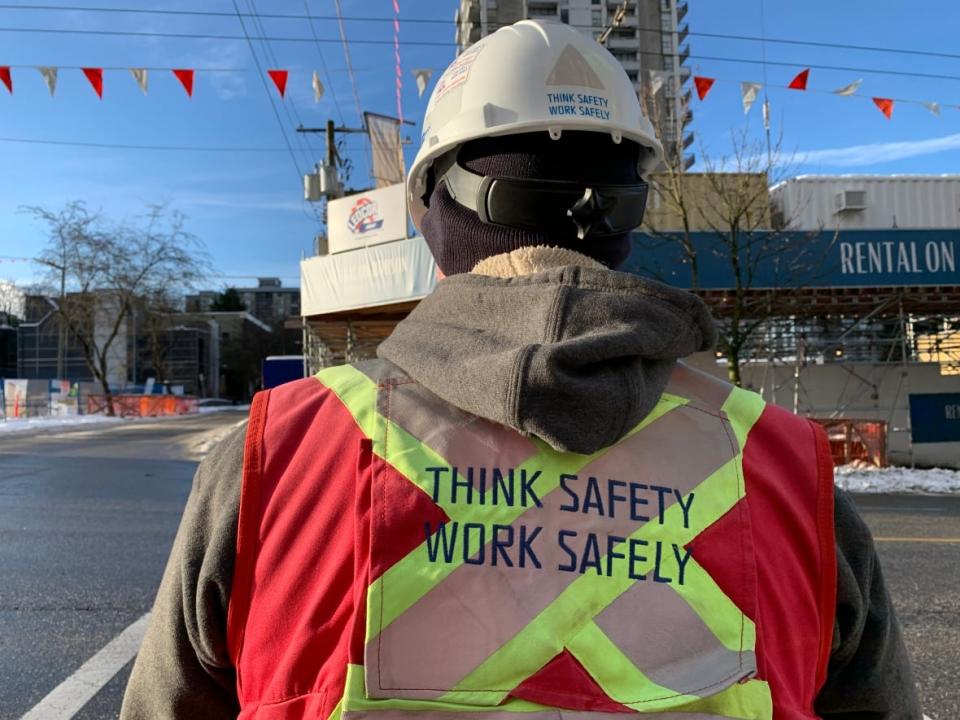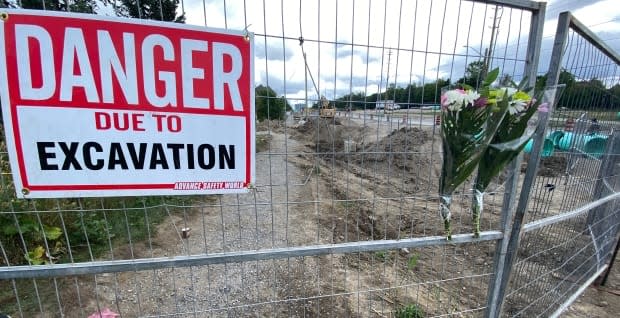All coroner's jury recommendations in 2014 trench collapse rejected by Ontario Labour Ministry

Ontario's Ministry of Labour has rejected all 10 recommendations a coroner's jury has made in an inquest into the death of a construction worker in a trench collapse eight years ago.
The ministry, which is not required to accept recommendations from a coroner's jury, says all the concerns raised in the inquest have already been addressed. But some critics say the province's move is "criminal" and shows it's unprepared to provide more training and resources to prevent similar workplace accidents.
"It's criminal that the ministry does not heed these recommendations," said Patty Coates, the president of the Ontario Federation of Labour (OFL), in a statement to CBC Toronto.
In July of 2014, Michael Picanco, 35, died when a trench collapsed at a construction site in Toronto. Due to the instability of the soil, it was impossible to rescue him until the morning after, according to the coroner's report. An autopsy showed Picanco suffocated due to the pressure on his chest from the collapsed soil.
The ministry's rejection of the recommendations comes after two workers died last August in a trench collapse in Ajax, Ont. The three-day inquest into Picanco's death began on Oct. 25.
The jury's recommendations include:
More unannounced inspections.
Mandatory trench safety training for workers.
Stronger penalties for companies with repeated safety violations.
A requirement for health and safety representatives at smaller work sites.
"What we're seeing now is long, drawn-out coroner's inquests that dredge everything up for the families, and then the Ministry of Labour simply says 'no' to every recommendation that could save another worker's life," Coates said.
Targeting repeat offenders
The Occupational Health and Safety Act (OHSA), which contains regulations that govern excavations, requires either a slope or a trench box to prevent collapses.
"In Picanco's case, there was neither," Coates said.
The company was fined $75,000 for violating the OHSA. The jury recommended that the ministry implement a "progressive disciplinary response" when companies have multiple non-compliance orders.
Eric Tucker, a labour law expert and professor emeritus at York University's Osgoode Hall Law School, said there must be an adequate system for targeting employers based on their history of compliance with safety regulations.
"Without the senior leadership of the Ministry of Labour not just guiding but requiring inspectors to take these factors into account and to escalate enforcement activities for repeat offenders, it tends not to happen," Tucker said.
"[When] employers violate a law, they're detected, they're told, 'We're ordering you to stop violating the law,' they stop violating the law, they're reinspected maybe some years later and they're found to be violating the law again," he added.
The jurors also recommended that construction workers take mandatory training courses on trench and excavation safety, and that workers have the right to refuse unsafe work without reprisal.
"The ministry invested $10.5 million into a one day eLearning program that we call a 'click, play and walk away' style format — whereas workers in larger workplaces take several days of training to be certified on the joint committee," Coates said.
The jury recommended that all workplaces with fewer than six employees have a health and safety representative at the site. But it also found that the ministry has not followed a previous recommendation that would make these representatives more effective.
In 2011, Bill 160 amended the OHSA and the Workplace Safety and Insurance Act to reflect the recommendations from the Tony Dean report in the wake of a 2009 swing stage collapse in Toronto. The jury in Pincanco's inquest found that the government has not implemented the report's recommendation that employees who are the health and safety representatives in their workplace get mandatory health and safety training.
"It's been 10 years and that amendment was not proclaimed; it is now lost," Coates said.

A spokesperson for the Ministry of Labour, Immigration, Training and Skills Development said it "carefully" reviews all recommendations from coroner's juries.
"There are many reasons for the ministry to not accept a recommendation. In this case, as the tragedy occurred in 2014, the ministry has already implemented changes that actively address the intentions of the jury's recommendations," said Jennifer Rushby.
"For instance, we invest $100 million annually into our Occupational Health and Safety strategy — called Prevention Works — to prevent workplace fatalities and injuries. Through these investments, we have a variety of prevention and educational programs that respond to the jury's concerns."
Rushby said inspectors regularly conduct proactive inspections and initiatives focused on raising occupational health and safety awareness and checking for compliance with the OHSA in the construction sector, including trench safety.
Since Jan. 1, the ministry has conducted over 21,000 inspections of construction sites, and stopped "unsafe" work over 4,700 times, she said.
'Not going to happen overnight'
Enzo Garritano, president and CEO of the Infrastructure Health and Safety Association, said the need to improve safety on job sites is critical.
"I think a great job a jury typically does [is] it really points towards things that are practical and that could make sense," he said.
"And there are certain mechanisms, as the ministry's pointed out, that are moving us in those directions and we have to also realize it's not going to happen overnight."
Coates said the OFL is calling for more unannounced inspections to detect trench violations, and to prosecute employers who retaliate against workers who voice concerns, instead of leaving it to the Ontario Labour Relations Board to provide monetary compensation to workers who are fired for doing so.
"Coroner's inquests are extremely important for uncovering what went wrong — but if there's no requirement for the Ministry to respond appropriately, what is the point?"

